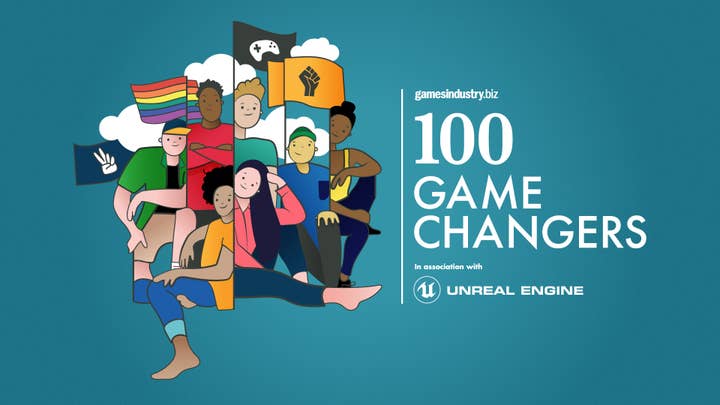GI 100 | Game Changers -- Part Seven
Game Changers continues with "decolonising" Indian video games, changing perspectives on games as art, and rethinking the ownership of development studios
As 2020 draws to a close, many will reflect on 12 months defined by stress, upheaval, and the urgent need to confront some difficult truths about the way the games industry operates, and the myriad ways it can be a better and more inclusive place.
But just as that process of self-examination is necessary, so too is recognition for those already working to solve those problems. In this GI 100 series we will profile 100 individuals and organisations making progress in vital areas like diversity, accessibility, charity, mental health, progressive politics, lifting emerging markets, uniting communities, and more -- people whose stories can show us how this industry can be that better and more inclusive place.
Below is the seventh group of ten Game Changers, with ten more to follow every working day until December 18. The project is sponsored by Unreal Engine and you can read more about it, and find links to all of the articles, here.
Laia Bee, Pincer Games
Running a studio is difficult, making games is hard, and doing both in a sustainable way is a singular challenge that many struggle with. Laia Bee, co-founder of Pincer Games, manages to do both while still giving so much of her time and herself to furthering the Uruguayan games industry.
"I strongly believe that volunteer work that helps your community has never-ending rewards, like learning, creating meaningful relationships that will help you in your work, and even creating job opportunities," she says. "With volunteer work, you can fail and try again, and make the most awesome friends along the way."
In addition to her duties at Pincer Games since its founding in 2014, Bee has been a key part of Girls in Tech Uruguay since 2015, a supporter of the country's developer association CAVI since 2016, a co-ordinator of the LATAM Video Game Federation since 2018, and is the lead for Uruguay for both the Global Game Jam and Latinx in Gaming.
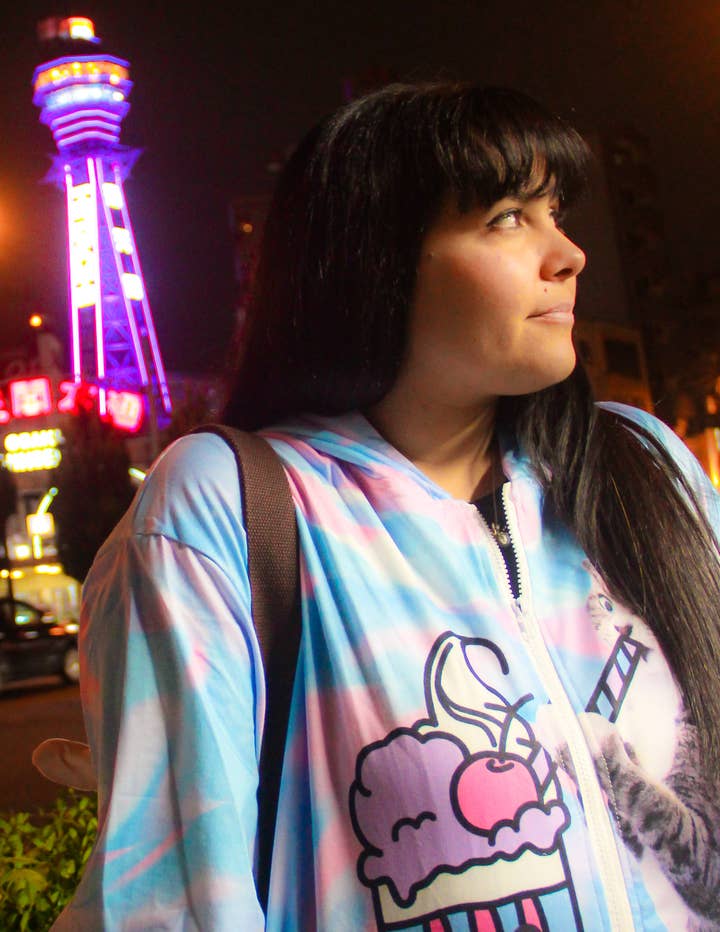
That's besides her role organising the Level UY Game Dev Summit, various meetups and hackathons, and advising the Uruguayan government on initiatives to support developers. Along with Martina Santoro, who was profiled in a previous article in the Game Changers series, Bee helped to create 110 GDC scholarships for developers from Latin America. Indeed, at the next GDC, you may see Bee onstage, as Rami ismail's successor as organiser of the #1reasontobe panel.
Ismail is one of the industry figures Bee feels grateful to, along with the veteran game designer Richard Lemarchand, both of whom showed her kindness and opened doors that would otherwise have been closed. Within LATAM, Bee highlights her "role models," Santoro and Sofia Battegazzore, and the patient support of Ironhide co-founder Alvaro Azofra.
However, one person stands above all the others: "Without any doubt, I have to name Pex Pison from Pomelo Games, who was the first president of the Uruguayan association. I wouldn't be here without him and his family's support."
In terms of industry support, Bee's advice is closely tied to the reason for her tireless efforts in service of her community.
"Please think about LATAM as an amazing hub for creativity and competitive games," she says. "We want to see our video games and studios be showcased in the main industry shows in the future, and be known by everyone in the world."
Saleem Dabbous, KO_OP
Saleem Dabbous started KO_OP in 2012 with Bronson Zgeb, having been inspired by the local independent development community in Montreal.
"We were inspired by indie record labels in the music scene, where you have an umbrella group that was supporting a bunch of different artists all doing their own thing," he says. "That's how we started out, but we found sustainability was really hard when we didn't know what we were all doing, so we shifted to something more traditional. But the record label model DNA was there from the beginning, and that's what inspired us to restructure as a worker's co-op.
"Folks in our community pointed out how we shared a lot of values with worker co-ops, so when we looked at that model it was a no-brainer to us. Making games involves so much hard work and sacrifice and learning. It didn't make sense to consolidate ownership in my hands just because I had the privilege of accessing some money."
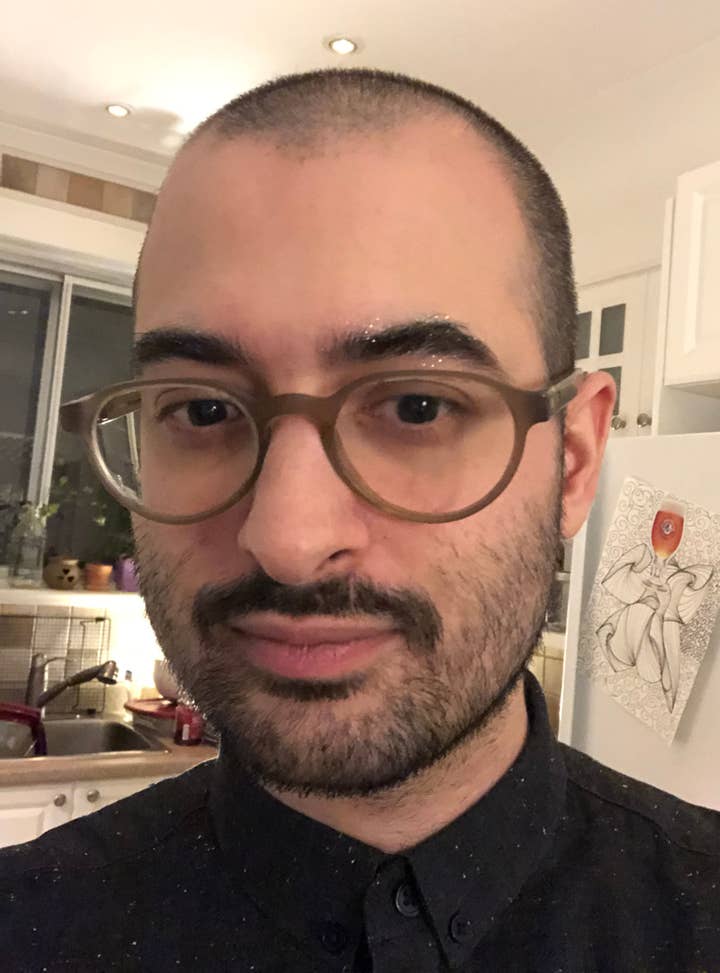
As Dabbous describes, KO_OP is structured so that while Dabbous is also the studio director, he has to solicit votes and buy-in from the team before executing on business strategies. The studio is currently working on Goodbye Volcano High, which Dabbous is directing alongside his partner Kyle McKernan.
In his spare time, Dabbous assists with Game & Colour, a grassroots volunteer group advocating for BIPOC spaces and initiatives in games in Montreal.
Dabbous thanks KO_OP's co-owners for their support: Samuel Boucher, Lucie Viatge, Marcela Huerta, Nick Rudzicz, Graeme Lennon, Omar Dabbous, Hope Erin Phillips, Kyle McKernan, G.P. Lackey, and Hazel Fraticelli. He says it's remarkable to work with a group that aligns with one another politically, while also being able to challenge one another and move the studio forward with mutual input and support.
He's also thankful to anyone else who believes in the vision of a studio owned by its workers, supporting queer and BIPOC folks in positions of authority and ownership over their creations, and helping them make the games they want to make.
"The best way for the industry to support us is to rethink their relationship with toxicity," he says. "It is not enough to put marginalized creators in positions of visibility on platforms if there's no protection of what that visibility brings. This industry needs strong moderation support, disavowals of hate and toxicity, and simply the prioritization of creators and their integrity to make games in an environment free from harassment.
"As a studio making games that has a lot of us in our work, we are exposed to a lot of damaging toxicity and at some point we have to say that it's not okay to just accept this as the cost of doing business. Continuing to support BIPOC and queer people in opportunities and visibility is critical, but so is standing up for them."
Declan Cassidy, Into Games
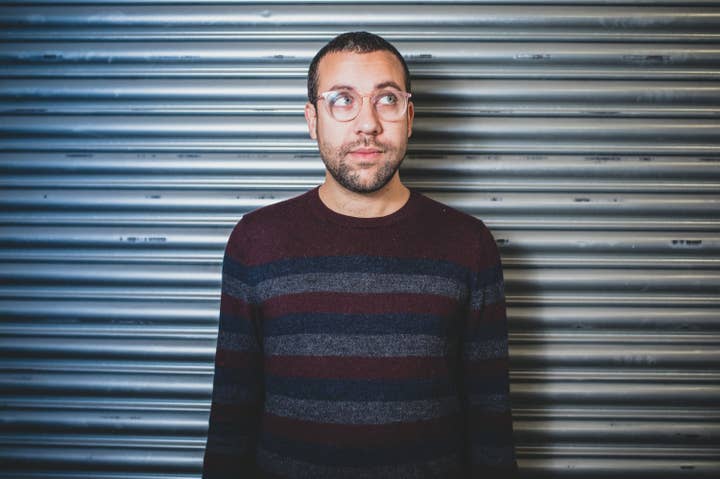
Improving diversity in games will go hand in hand with changes to the way talent is found and recruited. Education has an important role to play in presenting the industry as a potential career choice, and Declan Cassidy has worked for the last two years to make sure that's the case.
"Into Games was launched at the end of 2018 by Kirsty Rigden from FuturLab and myself," Cassidy says. "It was inspired by a small game jam project we had run for young people on free school meals in our hometown of Brighton. We had such a great reception, and our young participants got so much from the experience, that we were interested to see what else existed on a national level around developing career skills in games for underrepresented groups."
The pair noticed pockets of activity around these themes, but a lack of overarching initiative for career signposting or support. They ran some research sessions with studios, educators and students, and the non-profit, industry-led organisation Into Games was born.
"We want to eliminate systematic inequality in accessing support and guidance around games careers"
Declan Cassidy
"We want to eliminate systematic inequality in accessing support and guidance around games careers," Cassidy continues. "Everything we do is free at the point of use. We focus on developing access for people from underrepresented groups where possible, [and] we always work in partnership to maximise the impact and quality of output."
In just two years, Into Games launched the Video Games Ambassadors network with UKIE, providing over 500 industry staff the chance to volunteer their time at over 150 educational organisations, representing nearly 100,000 students from a range of backgrounds. It also has its own game jam, SideQuest, which led to the creation of over 400 games this year, many of them from first-time developers.
"We built a digital mentorship programme for 250 relationships with many of our mentees going on to find work in the sector," Cassidy adds. "As well as this, we built the world's largest online collection of games careers information, with over 120 roles mapped out with educational pathways for different age groups. We look forward to showcasing upcoming work on Virtual Work Experience for [further education] students, and our rollout of the government's Kickstart scheme to UK games studios, providing funded work placements for over 100 young people aged 16 to 24 in 45 studios.
"We are totally non-profit and very lean. Everything goes back into our programme work. We would love studios to sign up to become an Into Games Partner Studio, meaning that they support our general work and, in return, we help give them access to diverse talent, provide internal mentorship to staff and generally promote their studio and its culture to our educational network. To see how they can support, they can email me directly at declan@intogames.org."
Menno Deen, Games [4Diversity]
Menno Deen recalls that the position and representation of marginalised groups in the games industry became a public debate around 2013. That discourse would significantly influence his work in the coming years.
"It was great to see underrepresented groups speak up and share their experiences," he says. "I wanted to take it a step further and show how diversity could incite new and innovative gameplay. I started close to home. Since I identify as a gay man myself, I initiated a game jam for the LGBTQ+ community.
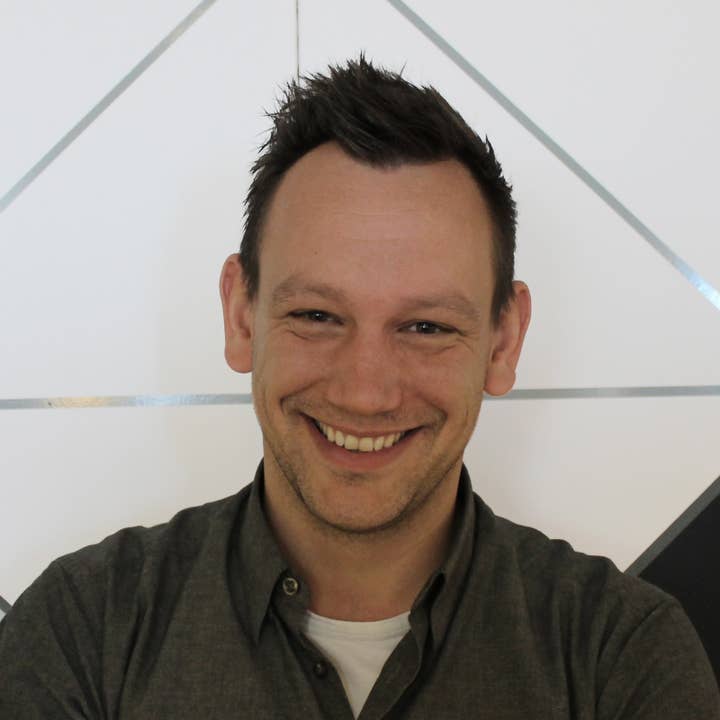
"During the first game jam, it became clear to me that talking about tough subjects is an integral part of change. The jams facilitated dialogue about differing perspectives in a positive and constructive manner. Developers were keen to understand each other and develop a shared understanding about a subject. A design process is a powerful instrument to bring people together."
In the years since, Deen has formed and expanded Games [4Diversity], an organisation dedicated to improving the representation of socio-cultural minorities in both games and the industry, as well as boosting the profile of underrepresented developers. It primarily does this through events, from informal mixes to game jams tackling related subjects and themes. It even organises an annual boat entry in the Utrecht Canal Pride parade.
These events always bring a positive and constructive attitude that Deen would like to see spread across the industry: "Personally, the gatherings are always inspiring to me because they 'force' me to put myself in someone else's shoes. Dialogues and especially design sessions enriched my perspective of other socio-cultural backgrounds than my own. This translates to my design practice in serious games, where I am always attuned to make sure that the game feels inclusive to -- hopefully -- everyone."
Outside his work at Games [4Diversity], Deen is a serious games designer at Dutch studio Lapp, and has developed titles about fighting loneliness, helping children to talk about sexual abuse, and contributing to scientific cancer research.
"I wanted to take it a step further and show how diversity could incite new and innovative gameplay"
Menno Deen
He has also contributed to the local development scene as a former incubation manager at Dutch Game Garden, and as organiser of the annual Dutch Courage events at GDC and Gamescom, with the latter showing off games that demonstrate Games [4Diversity]'s mission.
He thanks Dop Terlingen and Eva Nieuwdorp, who helped him organise various game jams, as well as other supporters, including Eline Muijres, Sabina Dirks, Roy van der Schilden, and Romy Halfweeg. As the debate around representation progresses, Deen is keen to collaborate with even more game companies.
"It would be great if other developers are willing to join us," says Deen. "We can also join them. Either way is amazing.
"The main goal of Games [4Diversity] is to contribute to more diversity in a positive and constructive way through dialogue and design. I do not care which flag they fly, as long as it happens."
LeeYing Foo, WiGout
While every country has unique issues to face when pushing for greater diversity, in virtually every global region the archetypal image of a 'game developer' is straight and male. For LeeYing Foo, a UI/UX designer based in Malaysia, challenging that perception is an essential part of making a greater variety of people feel welcome in the industry.
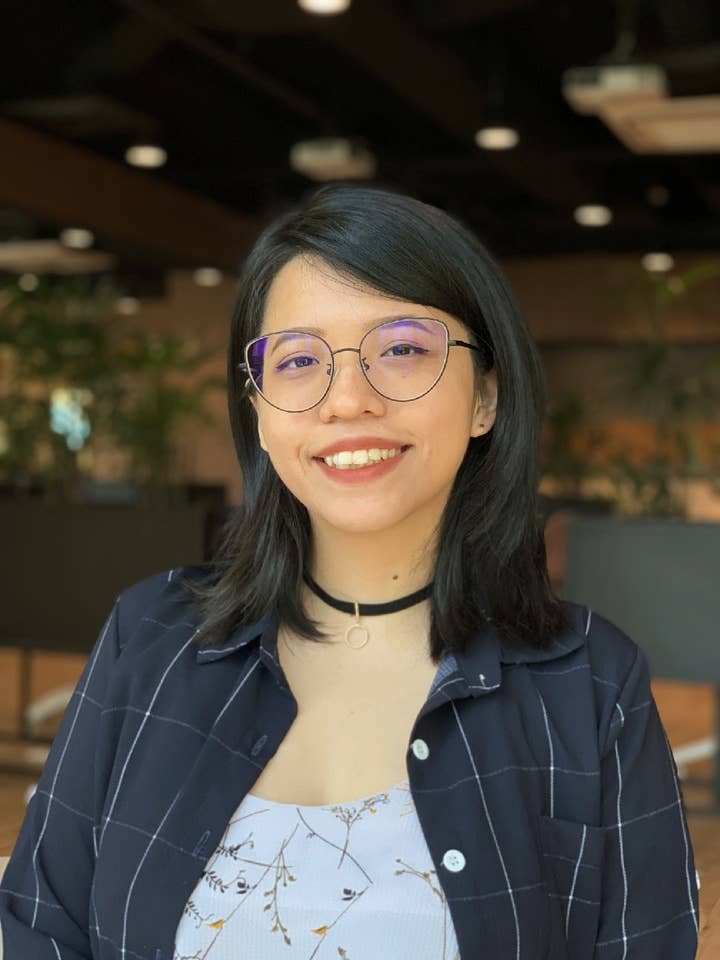
"In Malaysia, while there are exceptions, there's still a perception of what a game dev is supposed to look like, and many people don't fit into that mold," she says. "It's not often publicly talked about, but like with my own experience, many people still struggle to navigate this space in terms of their own identity.
"When I first entered the industry, I felt like I didn't belong as a woman and a queer person, and for years I always thought that I was the problem. After speaking to other folks, I realised that they felt the same way, and when you see other people having to deal with the same issues, you really start to draw a line."
That line was drawn in 2019, with the founding of WiGout in Kuala Lumpur. Foo wanted to create a safe space for women and underrepresented groups to gather, "where marginalised folks in the industry can be their authentic selves without having to put up a front or feel the pressure of having to 'prove' themselves as 'real' games dev professionals."
WiGout's activities are entirely driven by its members, and Foo says that is very much by design -- the group exists to benefit the community, and so the community's needs direct its actions. There have been panels showcasing the backgrounds and creative processes of individuals in the group, workshops on specific skills, and "rice cracker parties" where people can simply gather in an open and accepting environment.
Foo mentions three people as integral to WiGout: Malaysian games writer Priya Kulasagaran, and lecturers Ng Yiing Y'ng and Nabila Zakaria. She has also been well supported by her partner and her friends, all of whom served as confidants when she felt overwhelmed.
"There's still a perception of what a game dev is supposed to look like, and many people don't fit into that mold"
LeeYing Foo
In terms of the future, Foo hopes to see a greater recognition that improving diversity in the industry will require consistent action.
"While there's been a bigger push for diversity in recent years, there's also the danger of tokenism," she continues. "People may talk about 'women in games' once a year, and celebrate that, but if there's no concrete action for making women feel more welcomed and safe in the industry, it's just a box-ticking exercise.
"Diversity is not just about gender or ethnicity; it's also about the diversity of creative direction and design itself, in the sense that many publishers, and even game devs themselves, still think that games need to look a certain way or cater to a specific market in order to 'sell'. So it's not easy for a Malaysian game dev to make something that deeply represents our culture and our stories because these are not seen as being profitable enough.
"We can do as much work as we want, but if the industry as a whole is not receptive or open to these ideas, then it's going to be very hard to change things for the better - for everyone."
Mitu Khandaker and Latoya Peterson, Glow Up Games
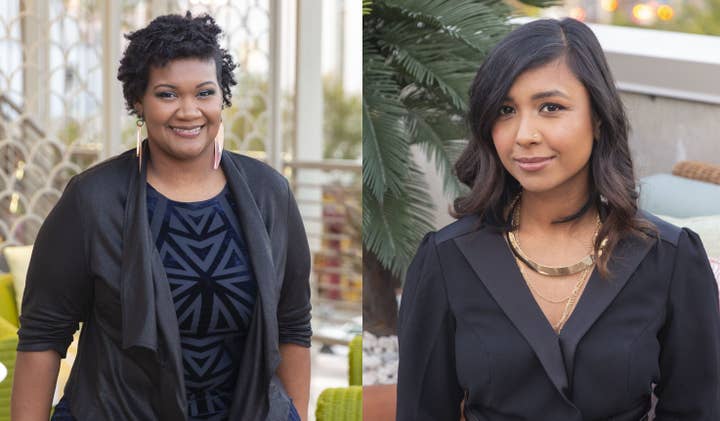
Mitu Khandaker and Latoya Peterson were already well-established and well-known before they started Glow Up Games last year. Khandaker was a founding team member at Spirit AI, a frequent speaker at games conferences, and designer of the 2013 comedy sci-fi sim Redshirt. Peterson was the owner and editor of the long-running race and pop culture blog Racialicious on top of a number of roles in television, and a Forbes 30 Under 30 honoree.
But the pair loved playing video games, and had grown frustrated that they never saw characters that resembled them or their stories.
"Gaming is still a field which is 20% female and less than 2% black," they say. "While there are a few companies in the space focusing on serving female players, many founded less than three years ago, we have not seen that same focus on women of color or people of color more broadly. But we knew we could do better."
They describe Glow Up as taking a data-driven design approach to understand what its target audience wants. The first product of this approach is Insecure, a mobile free-to-play title based on the HBO show of the same name.
"Everyone knows the industry needs more diversity, but to create change something has to work differently"
Glow Up
Glow Up is grateful to the rappers and developers working on Insecure, including Ethan Redd, Enongo Lumumba-Kasongo (Sammus), Owen Bell, Geneva Hayward, and others who had contributed earlier in the project. Khandaker and Peterson also wanted to thank their advisors, like Emily Greer and Jon Hook, Glow Up sister studio Brass Lion Entertainment, and the communities of the Game Devs of Color Expo, Sugar Gamers, and Black Girl Gamers.
And given the data-driven approach it's taking, Glow Up has been particularly grateful to studios like Kitfox, Clever Endeavor, and Yacht Club Games for sharing their own numbers publicly, "which has been instrumental as we try to build a studio that goes the distance."
When we ask what the industry can do to support Glow Up, Khandaker and Peterson call for self-reflection.
"Everyone knows the industry needs more diversity, but to create change something has to work differently," they say. "There has to be a change in process. So if you are a funder or publisher, and you haven't funded a game from a diverse team, why not? What can you change in your pipeline or recruitment process? Or do you need to expand the scope of your fund?
"If you mentor, how many developers of color are under your wing, talking to you each month? If you are a studio with resources, are you sponsoring places like Game Developers of Color or engaging with diverse IP and diverse developers? If you collect data, how much of that data can be accessed by small teams? How are you looking at data collection and what can you collect to contribute to a more equitable understanding of the games industry?"
"Issues of injustice are large, overwhelming, and systemic, but if a lot of people start taking small actions, they really do add up to big changes."
Avinash Kumar, Antariksha Sanchar
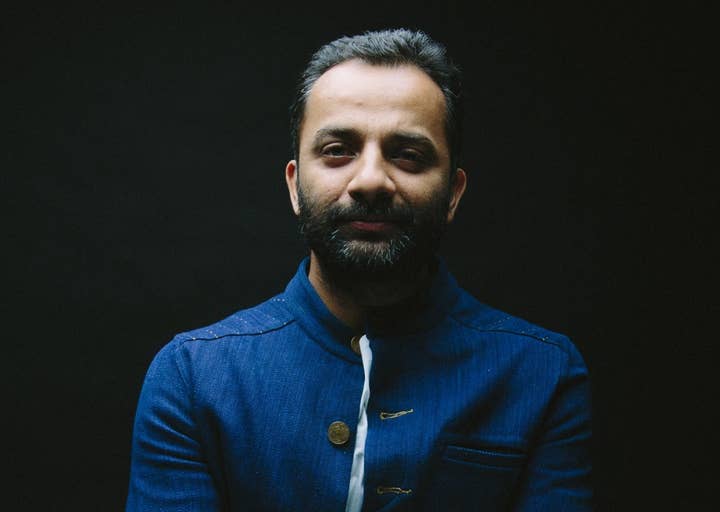
Indian culture has often been employed as a visual reference in games, but in many cases it has been used by majority non-Indian teams, leaning heavily on stereotypes. With the new multimedia project, Antariksha Sanchar, Avinash Kumar intends to reset expectations of what a game from India can look like.
Kumar's expansive range of creative interests is encapsulated by his two complementary organisations: Quicksand Design Studio and UnBox Cultural Futures Society. The former is a respected design consultancy that specialises in social impact and development; the latter, which was incubated at Quicksand, is a non-profit focused on nurturing a new, interdisciplinary creative culture in India.
"As homegrown practices and communities, Quicksand and UnBox both owe their origins and trajectories to a larger commitment towards India and the Global South," Kumar says. "Consequently, culture -- whether historical or emergent -- is an extremely important part of our work."
Antariksha Sanchar, or "Universal Transmissions," is a project that encompasses graphic novels, live dance performance and music, but with a game as its "hero asset." Ostensibly a point-and-click adventure, Antariksha Sanchar draws on parts of Indian culture and history of which many outside the country will be unaware.
"Indian culture is astonishingly varied, deep and complex, with room for making thousands of video games"
Avinash Kumar
"Our adventure is an ode to Indian imaginations of flight and space travel -- telling the tale of a mother-son duo who conquer the challenges of space travel on an aircraft powered by dreams, music and dance," Kumar says.
"The project is inspired by the work of Guru Jayalakshmi Eshwar [Kumar's mother], an Indian classical exponent of the ancient dance of Bharatanatyam. She produced a dance production by the same name in 2010 and 2011 that presents vignettes of Indian mythologies and advances in human flight. As a visual collaborator to this project, I felt this premise was a splendid starting point for an Indian science fiction video game, and that's how the journey began."
As the project developed, it became an expression of South Indian culture in general. The great Indian mathematician Srinivasa Ramanujan inspires the game's protagonist, for example, while the score is composed and played by Carnatic musicians.
A demo of the game was featured at both Indiecade and Sheffield Doc/Fest, giving Kumar hope that this distinctly regional creation will find an international audience. He expects the first episode to be released at the end of 2021.
"My dream is that a decade from now, Indian games would be accepted for their uniqueness on the global market, much like games and anime from Japan," he says.
"Indian culture and its myriad expressions are well known throughout the world, though often stereotyped and still suffering from its image development during the colonial era. We chose science fiction and speculative narratives as a central thrust to our project because we wanted to 'decolonise' Indian video game culture by showing an independence of spirit and action -- in our project as well as in the choices in storytelling."
Kumar adds: "Indian culture is astonishingly varied, deep and complex, with room for making thousands of video games. I feel privileged to even be trying to make one."
Nika Nour, IGDA Foundation
As the world's largest non-profit membership organisation serving the games industry, the International Game Developers Association has a reach that's invaluable to its charity work through the IGDA Foundation. The latter has been committed to improving the life of marginalised people in games since 2008, and that mission has taken a new dimension under the leadership of executive director Nika Nour.

"I joined the IGDA Foundation in 2019 to advance the careers, goals, and passions of underrepresented communities in games," Nour says. "Too often, I witnessed poor treatment of remarkable, diverse talent in the industry. As an experienced problem-solving gamer, I brought a history of success working in policy and public affairs with a multi-faceted background in crisis communications and technology. I am steadfast in seeking solutions to advance diversity, equity, and inclusion standards within technology and video game companies."
The IGDA Foundation runs several programs and scholarships to help underrepresented communities build sustainable careers, including -- but not limited to, Nour points out -- Black people, women, Latinx, and LGBTQ+ groups. Its work has also proved invaluable this year to help developers affected by the COVID-19 crisis, raising money via the Stay in the Game Relief Fund.
The IGDA Foundation is powered by a team of volunteers and a board of directors, and supported by sponsors such as Xbox, Riot Games, Niantic, Activision Blizzard, and Unity.
"In response to COVID-19, IGDA-F pivoted away from in-person GDC scholarships, and built scalable virtual programs for early- to mid-career developers seeking jobs and professional options in 14 countries," Nour says. "The best ways to support the IGDA Foundation are through volunteering, mentorship, and sponsorship. Our work is made possible by the contributions of executives, financial partnerships, indie veterans, and young volunteers.
"I am so proud of our team and the IGDA Foundation for paving the way for the next generation of game developers. I can't wait to hear from those who are interested in getting involved through email: Nika@IGDAfoundation.org or www.igdafoundation.org."
María Luján Oulton, Game Arts International Assembly
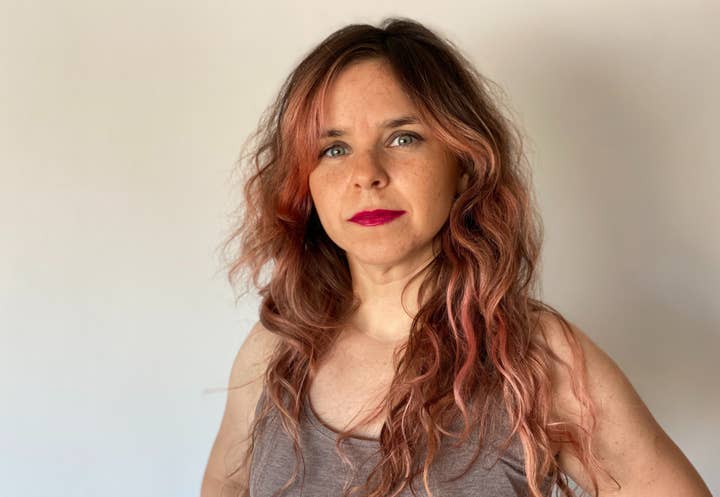
It wasn't so long ago that claims of video games being art were roundly dismissed by the wider public and critics of other media. However, María Luján Oulton has been challenging that viewpoint since 2008, working to promote video games as art and high culture in Argentina and beyond.
Oulton was running an art gallery at that time, and an exhibition exploring new media led her to the work of the Argentinian game designer Daniel Benmergui, and through him she discovered indie studios like Tale of Tales and Amanita Design.
"After the first edition of Game On! El Arte en Juego, I began looking at games from a different perspective, getting more and more involved in the experimental and academic side," she recalls. "I like to think that both Game On! (the exhibit) and myself grew alongside the artgames movement; we all evolved together."
Ten years ago, the view on games as art in Argentina was "a definitive no," Oulton says, though she argues that would have been the case in most countries around the world. That situation has changed.
"I'd say it is due to a mix of things," Oulton continues. "The growth of indie [development], international games art and culture exhibits and festivals, and the arrival of new generations that don't carry the same old prejudices."
"If games want to really be considered widely as an art and cultural form they have to be representative of a wider culture"
María Luján Oulton
People like Oulton have played an integral role in that change, creating new contexts that allow the artistry of video games to shine. Among her myriad contributions are academic work, published books and public events, both in Argentina and around the world.
In addition to the Game On! Exhibit -- which has been updated six times since its 2009 debut, and spawned a host of related smaller events -- she is the co-founder of the Game Arts International Assembly (GAIA), an international conference that has been held in Buenos Aires and Toronto. She is also an active part of Women in Games Argentina, which she believes has a similar final objective.
"I strongly think that diversity is crucial for games evolving as an artistic and cultural form, and actually it's kind of how it all started," she says. "Artgames show a different side of the industry; they are about empathy, experimentation and activism, they explore other sensibilities and narratives, they deal with different protagonists and stories… If games want to really be considered widely as an art and cultural form they have to be representative of a wider culture."
And the industry has a duty to support an aspect of video games that is not commercial by nature. The main obstacles Oulton faces in her work are "funding and visibility," and while she has been supported by various cultural institutions, the games business itself could do more.
"Those are key in order to thrive and quite difficult to find," she says. "I get a lot of encouraging words, but when it comes to sponsor activities it is a dead silence… There is a discourse on the importance of games as culture that is not being matched with proper action.
"It is highly crucial for the big games and tech companies to realise that this is an ecosystem we live in, that we are all in it for the same [reasons]. If you really think that games are art and culture, then support those who work towards that. The indie world and the art/experimental field are part of the industry, and they are quite crucial."
Renata Rapyo, Women Game Jam Brazil
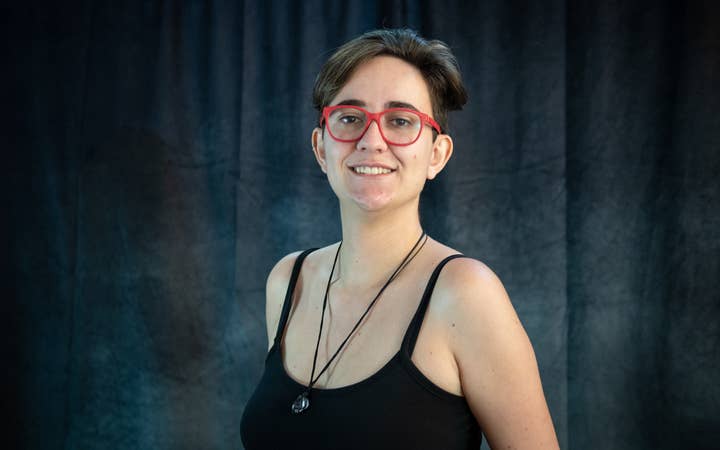
After participating in her first Women Game Jam event in 2018, Renata Rapyo suddenly found a number of new doors opening.
Women Game Jam is a game jam event for women and non-binary individuals that takes place in the second half of the year. In its last physical manifestation, it held events in eight different countries in Latin America; in its digital event in 2020, there were over 1,000 entries from 15 different countries.
The game Rapyo created in her first year won a scholarship to GDC in 2019, where she then spoke in two roundtables about the game jam and its importance and impact. And she was invited to organize the São Paulo site for Women Game Jam the following year, which she accepted. But she also asked Women Game Jam organizer Nayara Brito if she could make it even bigger.
"It's not only a matter of hiring people, but making the work environment a non-sexist place"
Renata Rapyo
Now, as the organizer of Women Game Jam Brazil, she keeps in touch with event leadership across the eight different countries currently represented in the event, as well as any up and coming new event sites. She does outreach to introduce new participants to the event, and speaks with sponsors to emphasize its importance and convince them to sign on.
She also works at Brazilian indie studio Rogue Snail as a producer and game designer.
"After joining a game studio I realized how little women worked in the production positions and how it could use a different perspective," Rapyo says. "Those were my main motivations -- showing people an entrance on how to begin working with games in a friendly, safe, and learning environment, and also to change the number of women working in games.
"I really like working at Rogue because of how diverse it is and how they truly believe in the same things as I do. Our team is diverse and we hire with this in mind, providing opportunities to everyone."
Rapyo is grateful to the country leaders of Women Game Jam, a list that includes Jazmín Giolito, Vania Catorceno, Alice Abreu, Ana Antar, Lizy Novo, Maia Lomelino, Margarita Pino, Sandra Castro Pinzón, Diana Rodríguez, Hugo Legorreta, and Sol Sánchez.
She says the best way for the industry to support her and her work is to hire more women.
"Not only to junior positions, but also if they are juniors and decide to leave the industry, talk to them and try to understand why. Because it's not only a matter of hiring people, but making the work environment a non-sexist place; a place where women can work freely and without the fear of being harassed, or needing to prove their arguments way more strongly than men do, or making them feel they need to show their Gamertag all the time.
"Besides that, if your company has the budget, try and support inclusiveness organizations and events. Because all we work to do is to make the games industry a better place."
